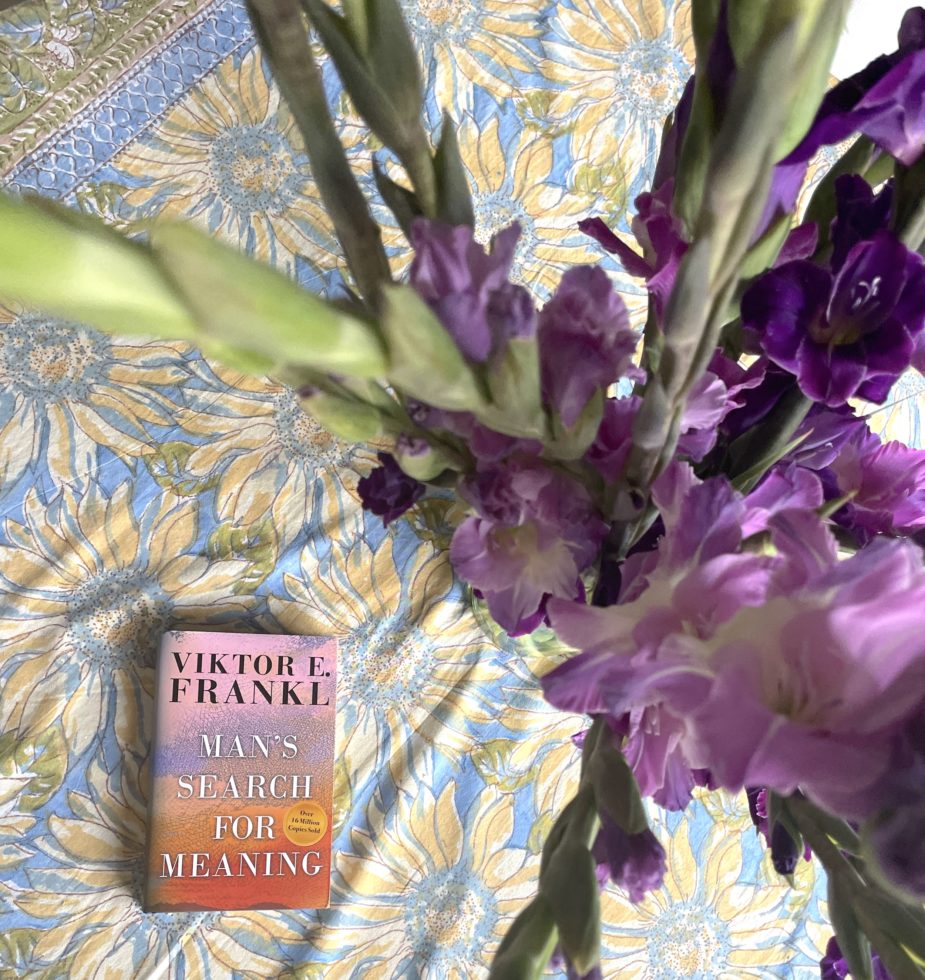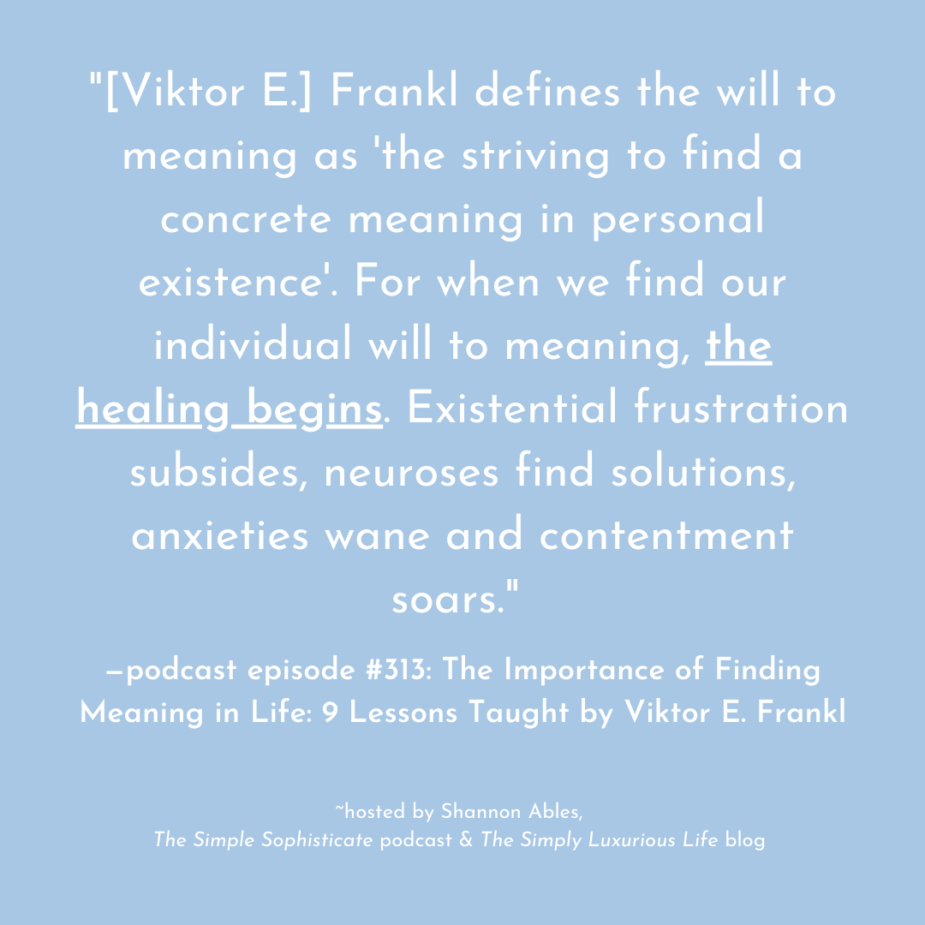Sun, 17 October 2021
"The missing element of oxygen, when brought home, gives us time in which we can record the tiny, visceral, magnificent details of living. The shower after a sweaty workout, a belly laugh with a friend, the warmth of fine whiskey, rain on the roof, or a tight and lasting hug . . . Busy can make you miss it all. Busy keeps you paddling along the surface of the water instead of diving down to see the parrot fish and the fan coral." —Juliet Funt, author of A Minute to Think: Reclaim creativity, conquer busyness and do your best work A thinking life is a happy life. But if you don't give yourself regular time to think well, living well is near impossible. Inspired by my own aha moments most recently as work shifted temporarily to being at home during the pandemic restrictions for in-person work environments, but also throughout my life when I would notice my productivity rise and fall based on the rigidity of my schedule, I witnessed which approach blatantly not only produced the best productivity, but the most joy as well. They were not mutually exclusive.
In fact, each time I have had the opportunity to travel to France, I witness the daily routines of the French, the long lunches, the deliciously untempered dinners that stretch into nearly early morning, and I remind myself to value quality engagement over the quantity of doing more and fitting more into a day's work or even play schedule. A new book, A Minute to Think provides encouraging evidence predominantly from inside the corporate world of the benefit of shifting away from more and instead investing in less. Today I would like to share with you seven ideas to ponder when it comes to how to live a life, that includes work, but is not driven by work, but rather living a fulfilling life, that brings you deeper contentment, joy and satisfaction. ~The Simple Sophisticate, episode #314
|
Sun, 3 October 2021
 "Man's search for meaning is the primary motivation in his life and not a 'secondary rationalization' of instinctual drives. This meaning is unique and specific in that it must and can be fulfilled by him alone; only then does it achieve a significance which will satisfy his own will to meaning." —Viktor E. Frankl First published in Germany in 1946, Viktor Emil Frankl's seminal work Man's Search for Meaning and the desire to write his first book (to be titled The Doctor and the Soul: An Introduction to Logotherapy) that largely gave him the will to live while imprisoned at Auschwitz during WWII. Marrying psychology and philosophy, a primary focus of his work throughout his life, Frankl shares "Certainly, my deep desire to write this manuscript anew helped me to survive the rigors of the camps I was in." Now with more than 16 million copies sold worldwide, Man's Search for Meaning continues to be a book to read, understand and reread. While not having the opportunity to read it until now, I am grateful that at least I finally did read it, and I would like to share with you today nine lessons learned about the importance of finding meaning in our lives. Much of the premise of a simply luxurious life is centering our lives, our selves, or perhaps a better word is grounding ourselves in priorities that marry what we can uniquely give, but also what the world desperately needs to progress and cultivate a more civil, loving and peaceful place for not only ourselves, but future generations. At first, such a task given to each of us may sound ginormous and far too weighty a task, but when we drill down, ultimately, love, sincere love, being able to share our true selves and be accepted begins to create a harmony of contentment that cannot help but create a symphonic awareness grounded in a desire to live more peacefully and lovingly with each other. Too far reaching some may contest, but if my own life journey, which indeed is filled with good fortune and privilege beyond my choice or control, demonstrates, when we have not found our meaning, when we are discontent, building healthy relationships is incredibly difficult, and often fraught as while trying to make sense of our lack of purpose, we displace our pain, so I wholeheartedly find worthwhile value in exploring what Viktor Frankl teaches, and hope it will offer tools for you as well to tap into what gives you meaning and share it with not only the world but yourself so that your everydays may be full of contentment. Let's take a look at the nine lessons. 1.Choose to pursue the will to meaning Frankl defines the will to meaning as "the striving to find a concrete meaning in personal existence". For when we find our individual will to meaning, the healing begins. Existential frustration subsides, neuroses find solutions, anxieties wane and contentment soars.
 2. Find your meaning, find your way forward Frankl shares an anecdote of an American diplomat who came to his (Frankl's) in Vienna discontent with his current career. Following five unfruitful years with his former psychological analyst who claimed the discontent came from the need to reconcile himself with his father as the analyst made a parallel with the father and the U.S. being a superior figure, upon visiting Frankl, and following only a few visits, the patient realized with clarity that his "will to meaning was frustrated by his vocation, and he actually longed to be engaged in some other kind of work. As there was no reason for not giving up his profession and embarking on a different one, he did so, with most gratifying results." 3. Nothing is wrong with you if you feel existential distress; in fact, you are heading in the right direction Frankl points out, moreso for practicing therapists, to not equate existential distress with mental disease. Asserting, "it is [the task of the therapist], rather, to pilot the patient through [their] existential crises of growth and development." So often in my own life journey, the distress of frustration by my career, my relationships (or lack thereof), and what I was meant to do with my finite days on earth, felt as though it was a burden, not good fortune. Something was 'wrong' with me for not having figured out my life journey immediately, quickly and feeling at ease. Thankfully, the opposite is true, all was well. I was listening to myself, I was acknowledging something didn't 'fit', what I was giving, what I was spending my time doing either wasn't enough or it wasn't aligned with my talents and what the world potentially needed. In this post - 9 Ways to Think Like a Monk, as taught by Jay Shetty - Shetty's idea of Dharma is shared. Passion + Expertise + Usefulness = Dharma In many ways, finding our Dharma is to find our will to meaning. 4. The unexpected gift of tension "What man actually needs is not a tensionless state but rather the striving and struggling for a worthwhile goal, a freely chosen task. What he needs is not the discharge of tension at any cost but the call of a potential meaning waiting to be fulfilled by him." I chose to bold the phrase 'freely chosen' because I find it to be an essential element to finding true contentment. Even if your life is charmed, yet you still feel discontent and frustration, yet society applauds, your family applauds, your friends cheer for what you are doing with your life, most likely, you have unconsciously not chosen for yourself the life you are living, but rather have been steered by approval, expectation and mores to take the steps and make the choices you have without truly acknowledging what you long for. Which leads me to the next item on the list, but first . . . Welcoming tension in your life must be thoughtfully done. After all, unnecessary stress is harmful to our health. No, what Frankl means by stating tension is healthy has everything to do with pursuing what gives you meaning. If you derive meaning from advocating for a cause, then the path forward will undoubtedly be fraught as you are striving for progress, but you strive forward anyway because it is your will to meaning. If you derive meaning from raising a family, nurturing your children as to give them their own wings with which to fly, the journey together will be a mingle of emotions, but you strive forward because it is your will to meaning. If you derive meaning from contributing through your chosen career path to improve the lives of others, you navigate through the frustrations, setbacks and hurdles because it is your will to meaning and you know why you are pursuing it. When the path we are on does not fulfill our will to meaning, similar to the anecdote of the American diplomat mentioned above, then the tension becomes unhealthy. Then we must be frank with ourselves and find the courage to change course and bravely do so, not only for our own well being, but for those we love and the world at large. Why? Because the world needs what you uniquely have to give. Figure out what that is and then begin giving what you discover. Your tension will be reduced to a healthy amount and your contentment will soar. 5. Discover what you long for and find your contentment The term Logotherapy as defined by Viktor E. Frankl derives its meaning from the Greek root Logos which is defined as "meaning". Logotherapy "strives to find a meaning in one's life as the primary motivational force of man". Logotherapy opens itself up while including 'instinctual facts within the individual's unconscious [it] . . . also cares for existential realities, such as the potential meaning of his existence to be fulfilled as well as his will to meaning." In other words, Logotherapy assists the patient to become aware of "what he actually longs for in the depth of his being". Understanding the language of your true self can sometimes be difficult and take time especially if we have suppressed it for some time; however, we are each capable of learning our language when we choose to be a student of ourselves. As I share in my About page (I recently updated it to reflect more accurately and specifically what TSLL is all about, but the shared portion below remains the same as it did in 2009), while I valued and gave my all to teaching, in 2009 I finally acknowledged that something wasn't entirely being satiated by solely working in the classroom." (see the excerpt below)
When we find meaning, even if nobody else understands why such a path speaks to us and brings us to life, we have found the motivation of infinite energy, creativity, tenacity and strength. 6. Find your meaning, eradicate boredom Frankl coins the term 'Sunday neurosis" as "that kind of depression which afflicts people who become aware of the lack of content in their lives when the rush of the busy week is over and the void within themselves becomes manifest." He goes on while speaking about the existential vacuum to share that without the will of meaning, and with the improved automatization of our 21st century, "many will not know what to do with all of their newly acquired free time". Which is to say boredom, anxiety, distress and lack of direction cause more solvable problems that he argues can be largely solved when we find our will to meaning. This is not to say you have to be busy every moment, pack your schedule with appointments; in fact, I would argue, it is the opposite. Or perhaps, more accurately, it is a knowing what supports and nourishes your will to meaning and thereby finding comfort with your down-time that is a part of your self-care and confidently engaging in your productive time when on task. 7. Your next best step toward meaning is what is best for you "The meaning of life differs from [person] to [person], from day to day and from hour to hour. What matters, therefore, is not the meaning of life in general but rather the specific meaning of a person's life at a given moment." I found it helpful to note that Frankl directly advises not to search for an abstract meaning of life, but rather a concrete 'assignment which demands fulfillment'. In other words, don't commodify yourself, but rather what is it you bring that is helpful and that you find fulfillment in giving? "Thus, everyone's task is as unique as is his specific opportunity to implement it." 8. Finding strength during times of suffering "When we are no longer able to change a situation, we are challenged to change ourselves." Just as Frankl's own life exemplifies harnessing his will to meaning to survive the unthinkable tragedies and struggles during WWII, he writes, "In some way, suffering ceases to be suffering at the moment it finds a meaning, such as the meaning of a sacrifice." However, and this is crucially important to absorb, he continues on in the same section of the book to point out "But let me make it perfectly clear that in no way is suffering necessary to find meaning. I only insist that meaning is possible even in spite of suffering—provided, certainly, that the suffering is unavoidable." 9. Hold yourself in the present fully for all the days of your life Frankl writes that we must refrain from being pessimistic and instead be activistic when it comes to our human existence. That is to say, "The pessimist resembles a man who observes with fear and sadness that his wall calendar, from which he daily tears a sheet, grows thinner with each passing day. On the other hand, the person who attacks the problems of life actively is like a man who removes each successive leaf from his calendar and files it neatly and carefully away with its predecessors, after first having jotted down a few diary notes on the back. He can reflect with pride and joy on all the richness set down in these notes, on all the life he has already lived to the fullest." He goes on to suggest there is no need to envy the young because we have lived fully each of our days, holding ourselves in the present, motivated by our will to meaning, and "instead of possibilities . . . have realities [from our past experiences] . . . not only the reality of work done and of love loved, but of sufferings bravely suffered." Just as happiness cannot be experienced in every moment, suffering cannot be wholly avoided when we find our will to meaning and let it guide us forward. However, by holding ourselves in the present moment, while we cannot avoid experiencing the loss of loved ones, we can love fully, so that when we reflect, we are filled with joy and reminded of the riches of our lives, riches we, by bravely living well, engaging with our humanity, courageously stepping into what we discover is our will of meaning, helped to bring forth into our lives. Upon learning about Viktor E. Frankl's approach to therapy and perspective on the meaning of humans, I found an alignment that has unconsciously spoke to me to honor for decades. Although never making sense, and not having the opportunity, nor pursuing more intentionally philosophy courses in college, the ideas danced about in my mind, and while I, at the time, wanted them to leave me alone because they were so perplexing, they thankfully waited for me to make sense of them, to trust them. The world swirling around us via media, messaging, our community can be deafening and hold us off course if we let it. But when we understand that the feeling of frustration is actually a sign that we are hearing our inner voice, we can find peace. Because in that moment of aha, we can take a breath, and continue to pursue the questions that keep bouncing around in our mind, because, if my own journey is any indication it is a path that will lead you to everyday contentment. I do hope you enjoy this week's episode of the podcast. Thank you for stopping by and tuning in.
 Man's Search for Meaning by Viktor E. Frankl
SIMILAR POSTS/EPISODES YOU MIGHT ENJOY:
Petit Plaisirs
 —Ted Lasso, Apple TV+ (click here to learn more about the recommendation, watch the trailers of both seasons and the original ad which began the idea for the show)
 —Sautéed Oyster Mushroom Appetizer (view the recipe here) View more Petit Plaisirs here. ~The Simple Sophisticate, episode #313~Subscribe to The Simple Sophisticate: iTunes | Stitcher | iHeartRadio | YouTube | Spotify | Amazon Music |
The Simple Sophisticate - Intelligent Living Paired with Signature Style

Categories
lifestylemoney
fashion
general
food
relationships
beauty
holidays
style
decor
etiquette
technology
dating
clothing
news
happiness
health
finances
self-help
feminism
french living
communication
inspiration
self-improvement
cooking
French-inspired
podcast
travel
entertaining
Archives
AprilMarch
February
January
December
November
October
September
August
July
June
May
April
March
February
January
December
November
October
September
August
July
June
May
April
March
February
January
December
November
October
September
August
June
May
April
March
February
January
December
November
October
September
August
July
June
May
April
March
February
January
December
November
October
September
August
July
June
May
March
February
January
December
November
October
September
August
July
June
May
April
March
February
January
December
November
October
September
August
July
June
May
April
March
February
January
December
November
October
September
August
July
June
May
April
March
February
January
December
November
October
September
August
July
June
May
April
March
February
January
December
November
October
September
August
| S | M | T | W | T | F | S |
|---|---|---|---|---|---|---|
| 1 | 2 | |||||
| 3 | 4 | 5 | 6 | 7 | 8 | 9 |
| 10 | 11 | 12 | 13 | 14 | 15 | 16 |
| 17 | 18 | 19 | 20 | 21 | 22 | 23 |
| 24 | 25 | 26 | 27 | 28 | 29 | 30 |
| 31 | ||||||
Syndication



